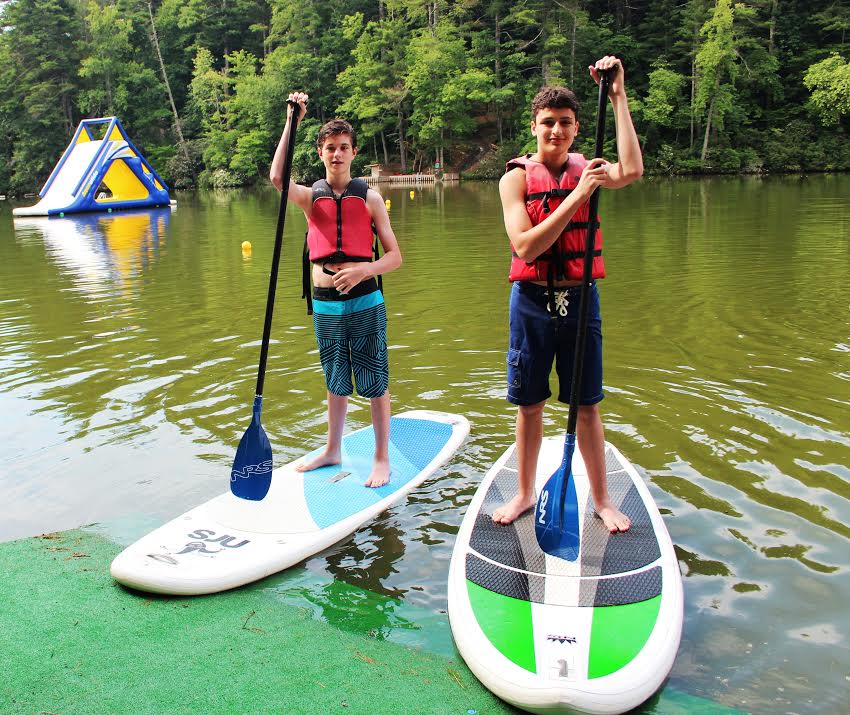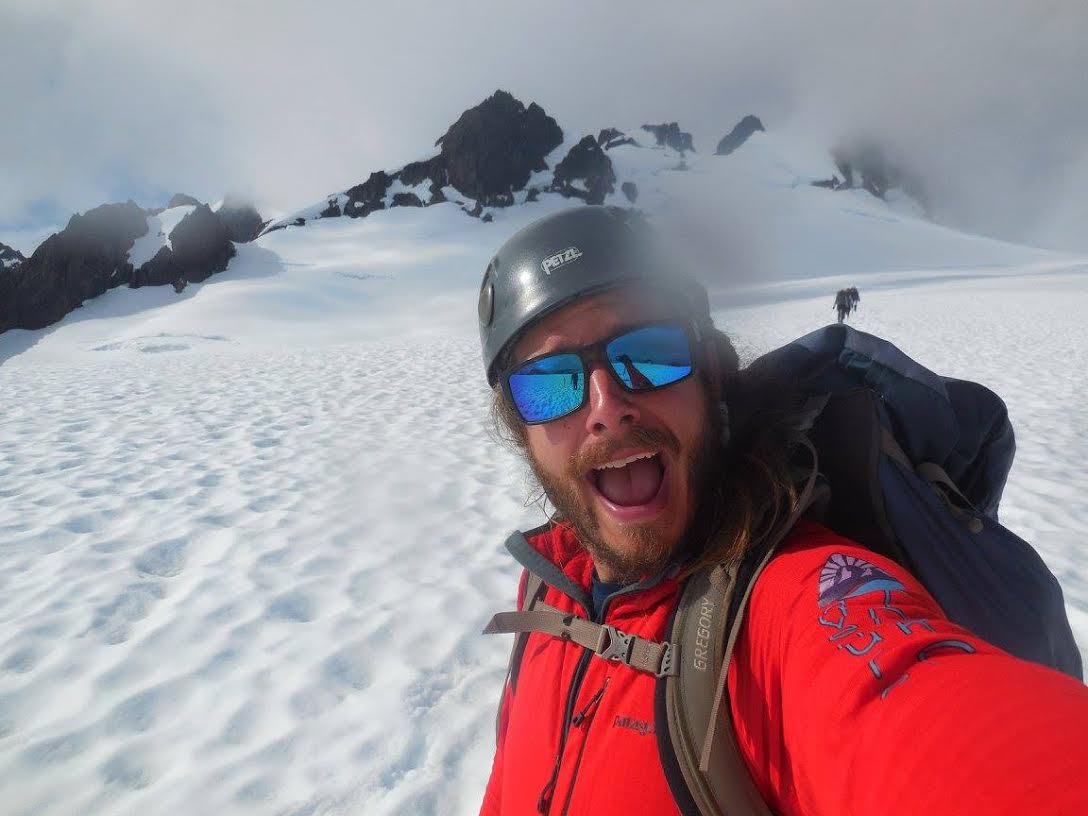
Joe on Mt. Olympus during the Leadership Summit trip.
As some of you may know, Josh Goldbach, our associate director, has moved on from Adventure Treks. After six years with us, Josh decided that while he did not want to leave AT, he did want to try on a new hat. He is still a part of the Adventure Treks family, and has been helping with staffing and new ideas for our upcoming 2017 season. While we miss having Josh in our office and are thankful for all of his hard work, we are excited to welcome Joe Sisti as the new staffing director. Some of you may already know Joe as one of our students’ (and staff’s!) favorite Adventure Treks instructors
Originally from Virginia, Joe received a bachelor’s degree from Virginia Tech. Instead of playing football, he decided to focus his time in the outdoors, and has since become an accomplished outdoor educator, rock climber, skier, and mountain biker. Joe has been working with Adventure Treks as an instructor, then a trip leader, and then our educational programs director for the past five years. So you all can get to know Joe a little better, he answered a few questions for us.
What’s your favorite AT activity? It’s not the most exciting on paper, but the backpacks are the best. Biking and climbing are exciting, but I feel like the real moments that make AT what it is happen on our backpacks. Everything changes once you leave the trailhead. You get time to settle down and take it all in. The hours on the trail allow everyone to have great conversations and get to know one another. After a few days of this, the guards come down and everyone is able to be themselves. You play tons of games and work together to get all the little chores done so you can have more time to enjoy the views, talk, or just hang out in nature. Backpacking with AT students is great, and most of the time, I forget I’m even working.
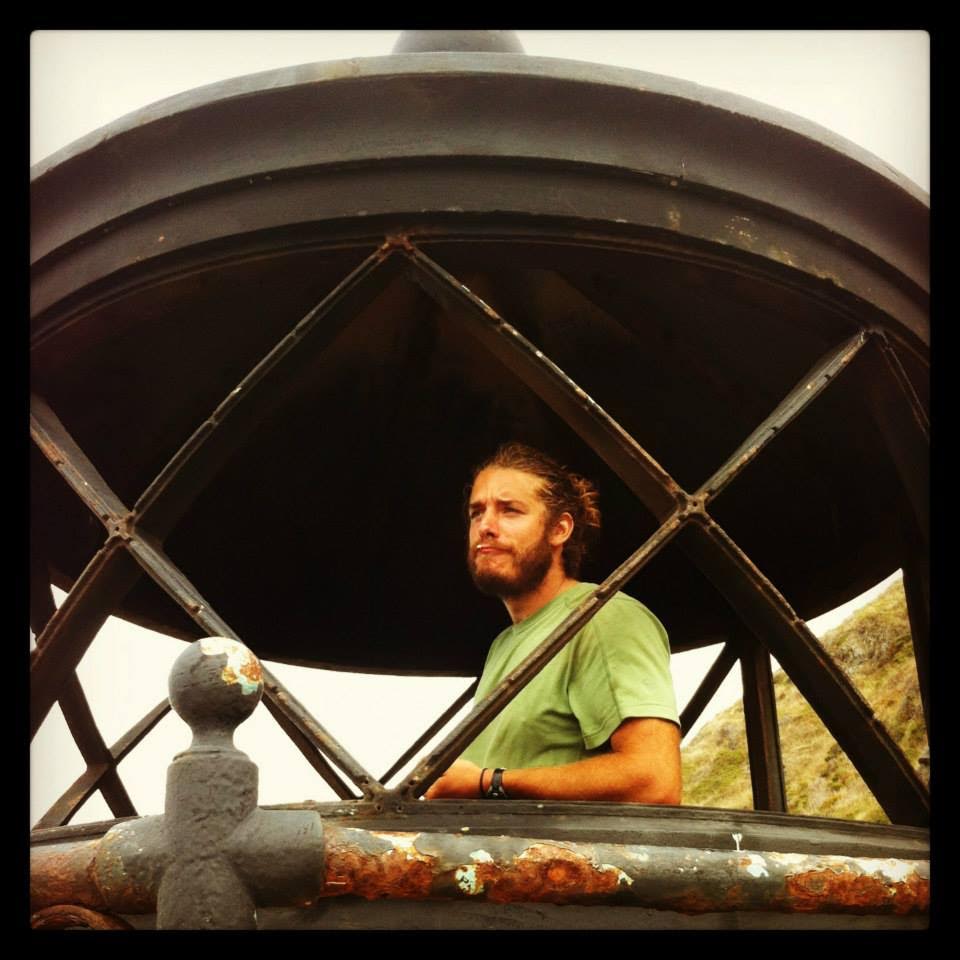
Joe on the Lost Coast during a California Challenge trip.
What made you want to work as an outdoor educator? I had some pretty tough times in college, and I really struggled to find my path. I had no idea what I wanted to do for a job or career. The one thing that seemed to make my worries go away was going for hikes in the mountains around Blacksburg. The Appalachian Trail runs pretty close to town, so there are tons of opportunities for great hikes. One day while outside, I thought, “I wish this could be my job.” After doing a little research and getting some helpful advice from my manager at Domino’s Pizza (I had a brief stint as a delivery boy), I took a NOLS course in Wyoming whereI spent nearly 30 days in the backcountry. I had never felt so good. One of my instructors, Claire Parrish, really inspired me. She was such a competent outdoorsperson—tough and strong—but also the most positive person I had ever met. She made brutal hikes through steep terrain a blast. I realized I wanted to be her. I thought if I could have the impact on at least one student the way she did with me, it would be worth it.
What’s your favorite AT memory? There are lots, but two come to mind immediately. In summer 2016 while on Leadership Summit, we stopped at Goodwill to purchase some summit flair before climbing Mt. Olympus in Washington. All of the students purchased purple clothing, and we held an impromptu purple prom at our group campsite in Sequim Bay. It was better than any prom I attended in high school, and I realized, once again, that the students who come to AT truly are special: inclusive, fun, and totally willing to be their weird selves. I loved it. The second one occurred on a backpack in the Trinity Alps in California. We made camp early due to some tough conditions, and to pass time, we played loads of games, wrote a group poem, and took a swim in an alpine lake. The icing on the cake, though: acting out books one through three of Harry Potter. There were only four of us involved, and the group asked us to stop at three, but there are not many times I can remember having more fun in the woods.
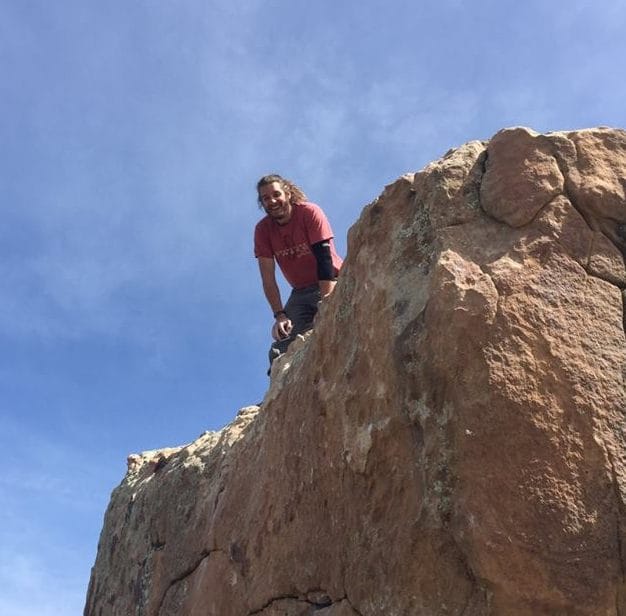
Joe showing off his AT colors in Colorado.
What keeps you coming back to AT? The people: the students, the instructors, the directors I get to work for. Our trips are great, and I haven’t had a course area at AT that wasn’t spectacular. Dock [John Dockendorf], though, has truly created something special at AT. It really is a second family. My friends there know me better than anyone else; they have seen me at my best, and also at my not-so-best, and they still love me. That’s a pretty rare thing to come across these days: total acceptance for who you are. At the end of a season, I think most people involved with AT feel that way, students and instructors alike.
What’s something unique about you? If we are talking about quirks, I could go on for a while. I’ll choose two. I love Reuben sandwiches. I have had one in every new place I have traveled to. I lost count of how many I have tried in how many restaurants, but the best one can be found at Choice City Deli in Fort Collins, CO. Seriously, I’ve tried them all over America and the corned bison Reuben there is just the best. I also have an odd connection to writing utensils. The pen I am currently using has been with me for nearly three years now. I can’t stand losing them.

 Summer officially begins at Adventure Treks in just four months, and the first students of 2017 will be landing at their arrival airports a few short weeks later. In order to make planning your student’s transportation a little easier, here are a few lessons we’ve learned over the years.
Summer officially begins at Adventure Treks in just four months, and the first students of 2017 will be landing at their arrival airports a few short weeks later. In order to make planning your student’s transportation a little easier, here are a few lessons we’ve learned over the years. Thank You for Being Late by New York Times columnist Thomas Friedman is the most powerful book I have read this year, and it does an outstanding job of explaining the current state of the world and the “accelerators” driving the insane pace of change. Friedman’s accelerators include Moore’s Law, Big Data, the markets, population growth, and global warming—all whose effects are expanding exponentially. At this point, the pace of change has exceeded most humans’ ability to adapt.
Thank You for Being Late by New York Times columnist Thomas Friedman is the most powerful book I have read this year, and it does an outstanding job of explaining the current state of the world and the “accelerators” driving the insane pace of change. Friedman’s accelerators include Moore’s Law, Big Data, the markets, population growth, and global warming—all whose effects are expanding exponentially. At this point, the pace of change has exceeded most humans’ ability to adapt.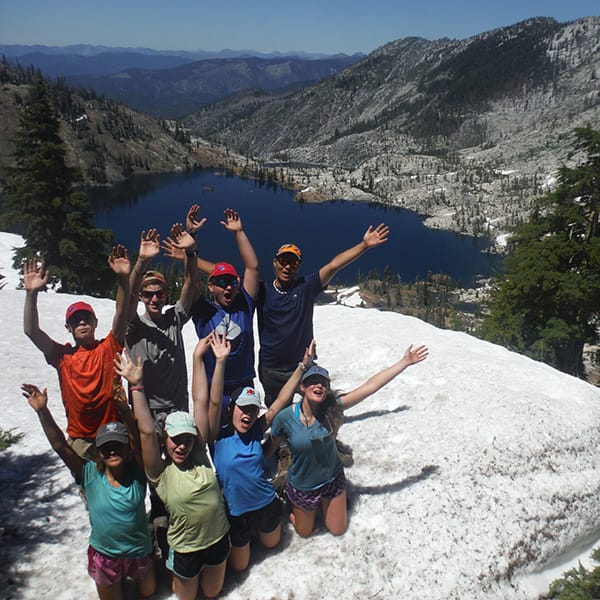 1. Time to reflect
1. Time to reflect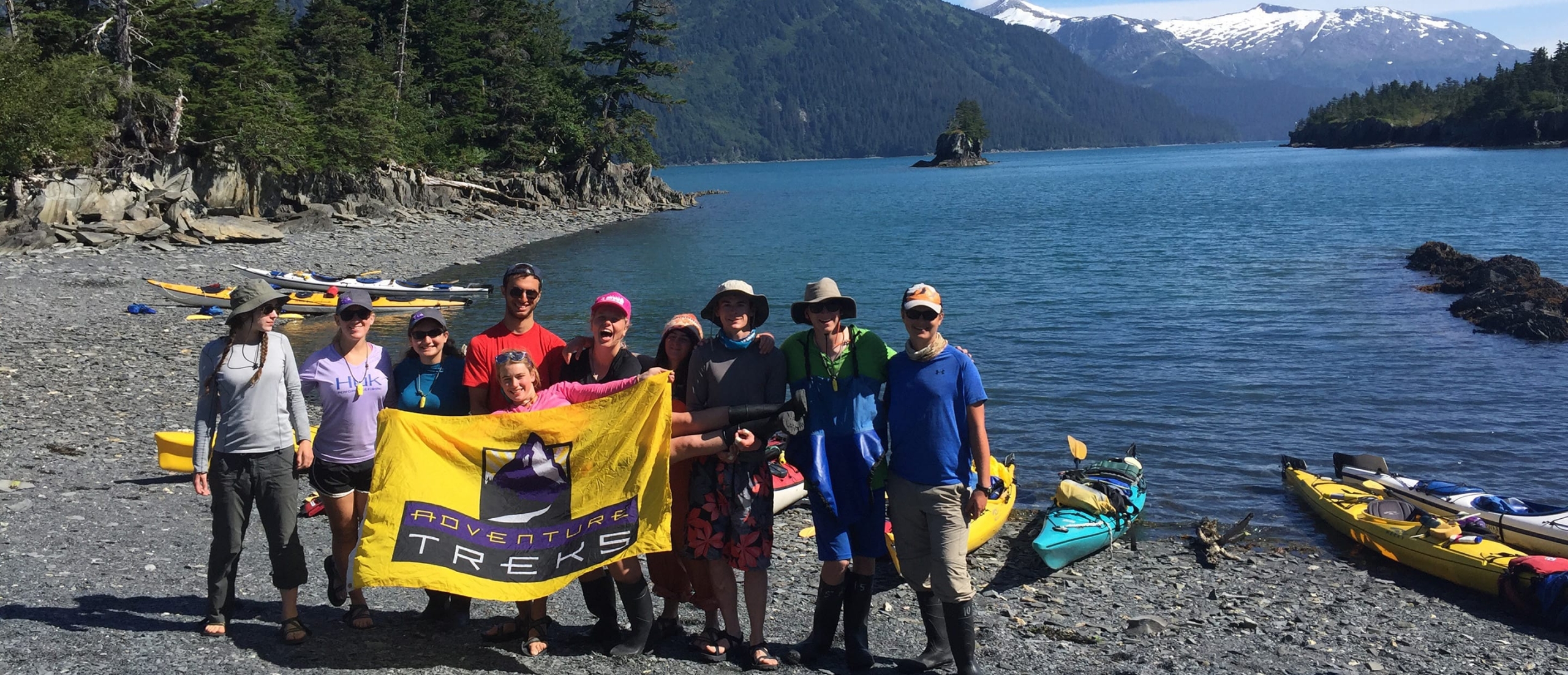 4. The importance of community
4. The importance of community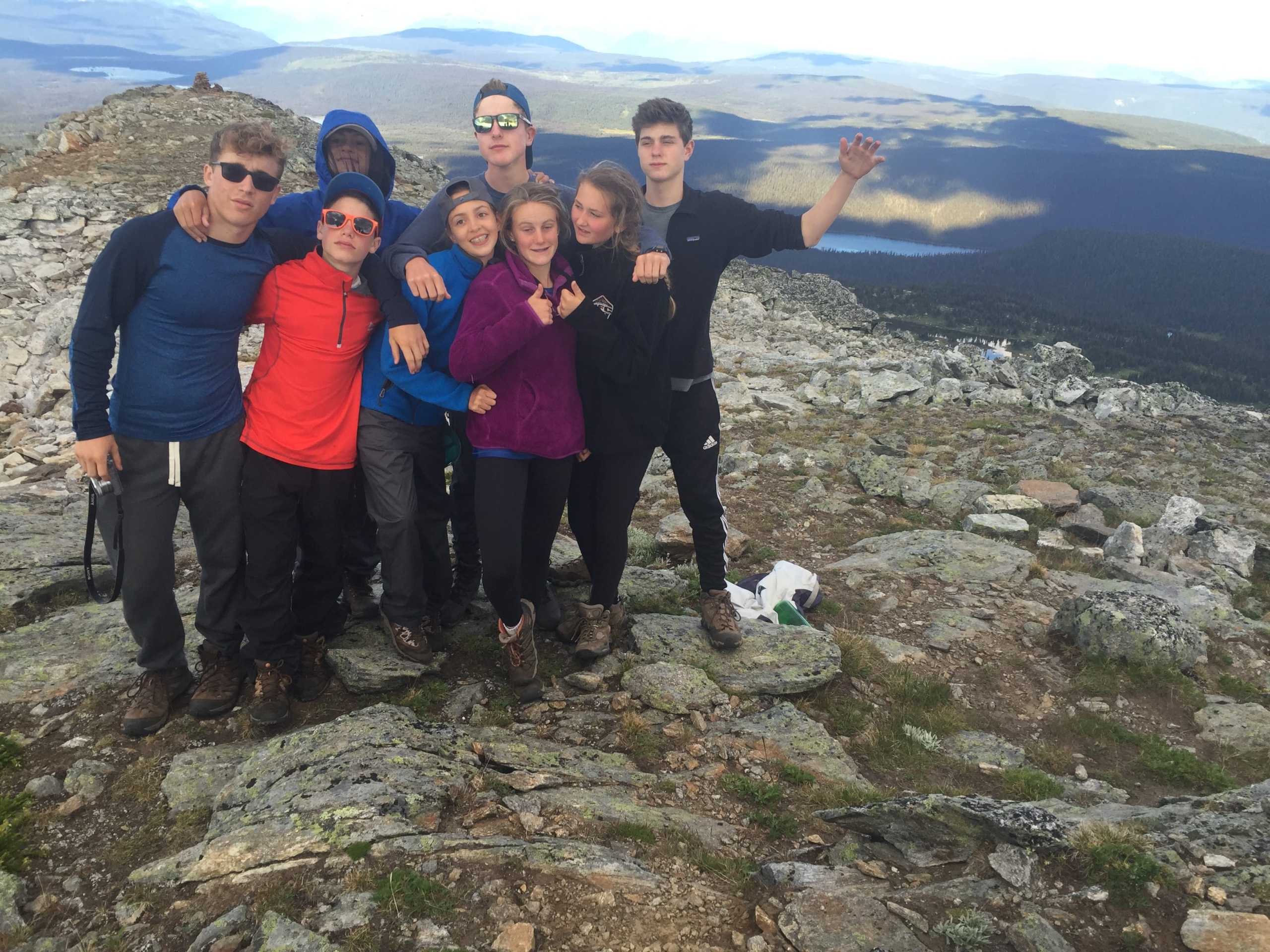
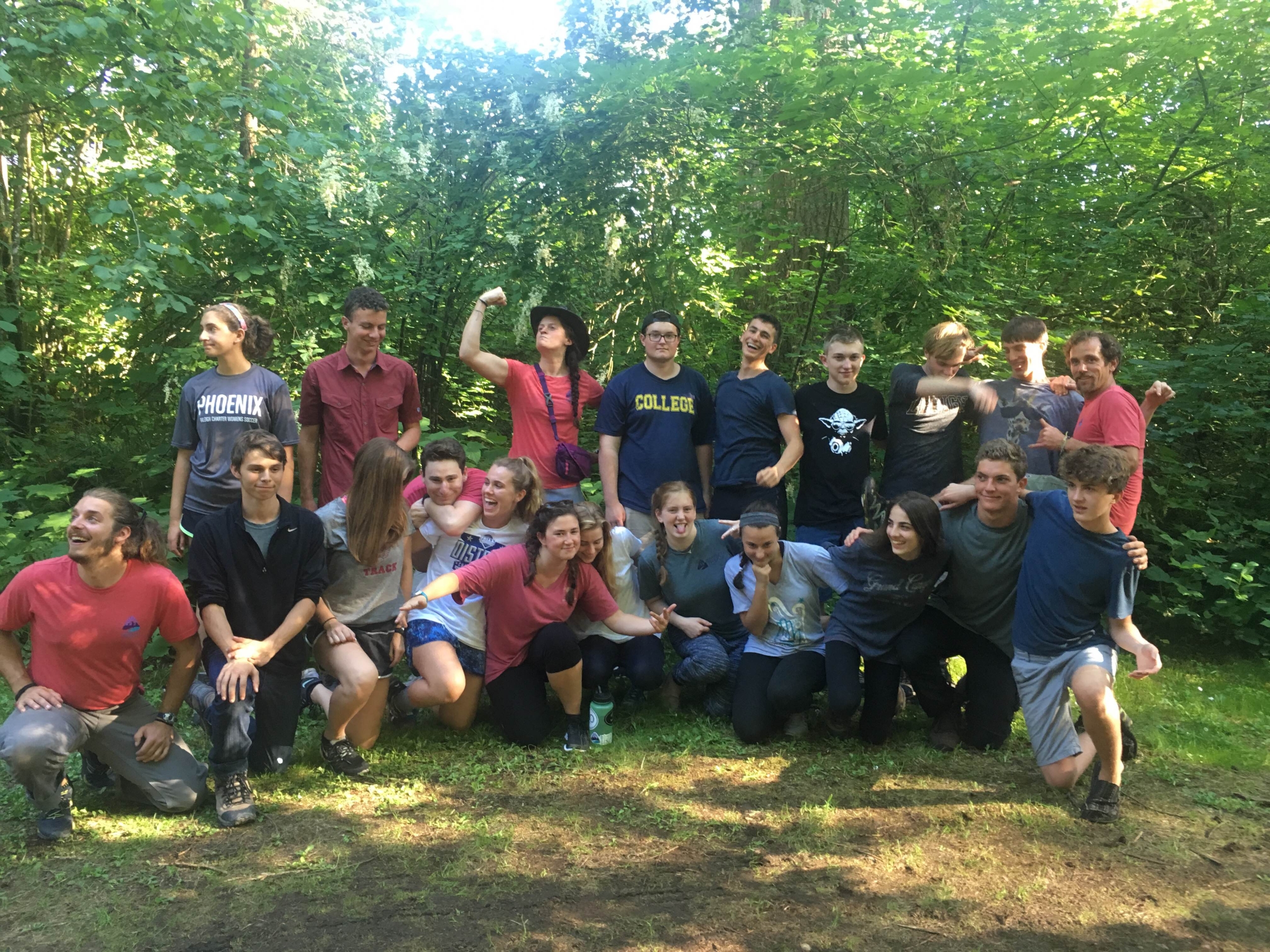
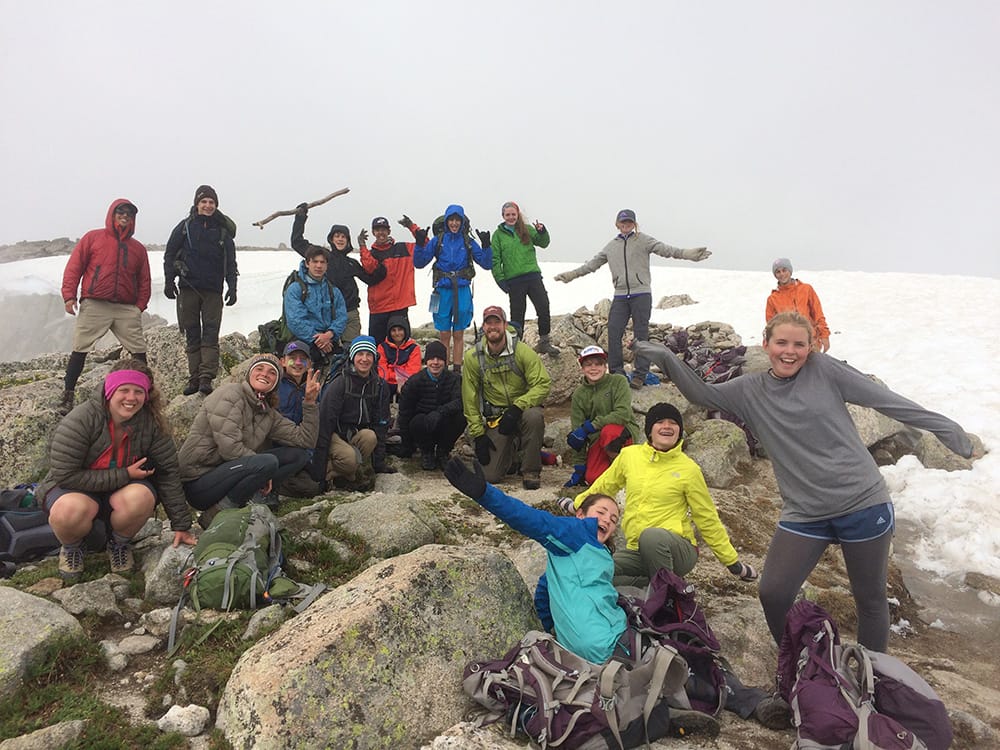
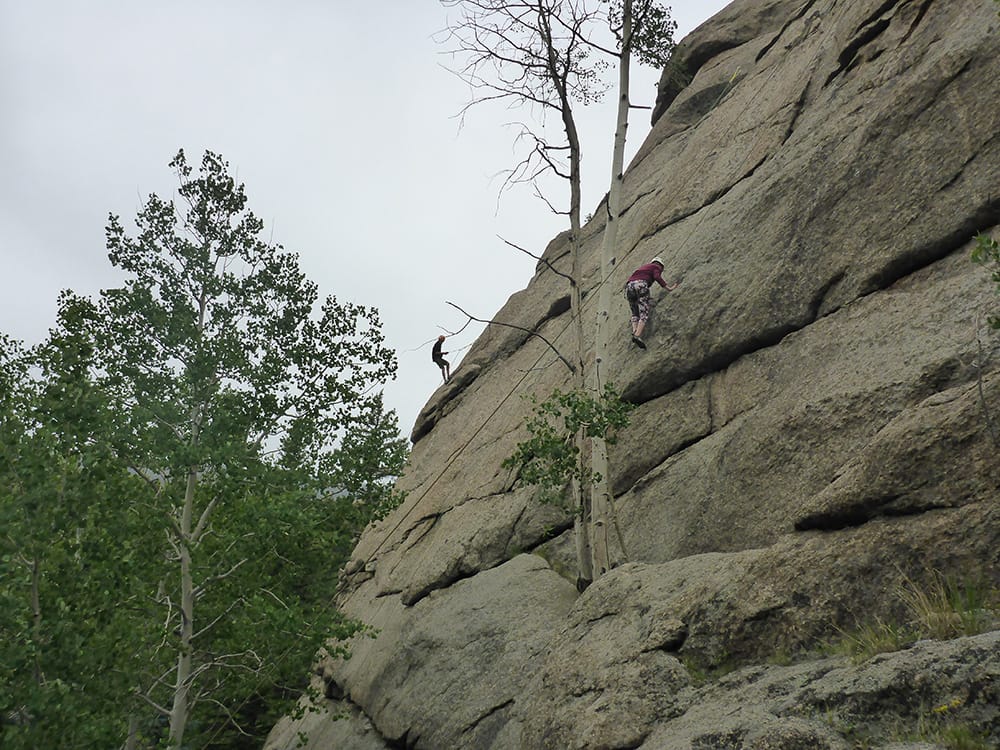
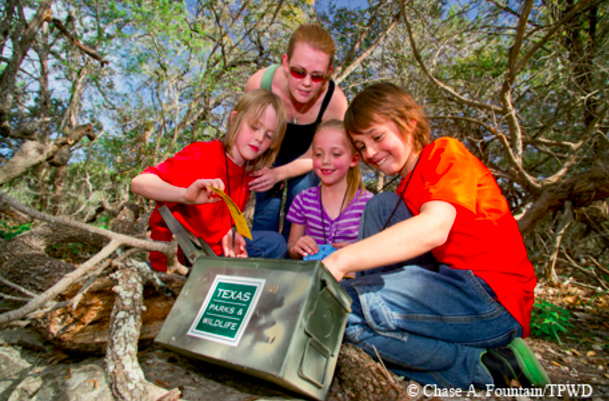 Hiking is an incredibly fun and informative activity, and you don’t need a five-day backpack in a remote area to appreciate all of the benefits. Taking an hour or two out of your week to take your kids for a walk in the woods is a great way to get some outdoor adventure time. It requires minimal skills, equipment, and resources. Most major cities have nearby nature preserves with surprisingly beautiful hikes.
Hiking is an incredibly fun and informative activity, and you don’t need a five-day backpack in a remote area to appreciate all of the benefits. Taking an hour or two out of your week to take your kids for a walk in the woods is a great way to get some outdoor adventure time. It requires minimal skills, equipment, and resources. Most major cities have nearby nature preserves with surprisingly beautiful hikes.  If weekend trips are simply out of the question for you as a parent, there are still options for you to help your teenager further his or her outdoor dreams. If your child has an interest in rock climbing, local indoor rock climbing gyms can be just what you’re looking for. Most climbing gyms offer excellent “bouldering,” which means climbing at low heights without a rope, often not leaving the ground higher than eight feet and staying over soft foam pads. Bouldering offers the opportunity to work on the physical and athletic parts of climbing, and anyone can participate. Climbing gyms offer routes for all ability levels, and professional instruction is usually available as well.
If weekend trips are simply out of the question for you as a parent, there are still options for you to help your teenager further his or her outdoor dreams. If your child has an interest in rock climbing, local indoor rock climbing gyms can be just what you’re looking for. Most climbing gyms offer excellent “bouldering,” which means climbing at low heights without a rope, often not leaving the ground higher than eight feet and staying over soft foam pads. Bouldering offers the opportunity to work on the physical and athletic parts of climbing, and anyone can participate. Climbing gyms offer routes for all ability levels, and professional instruction is usually available as well.
